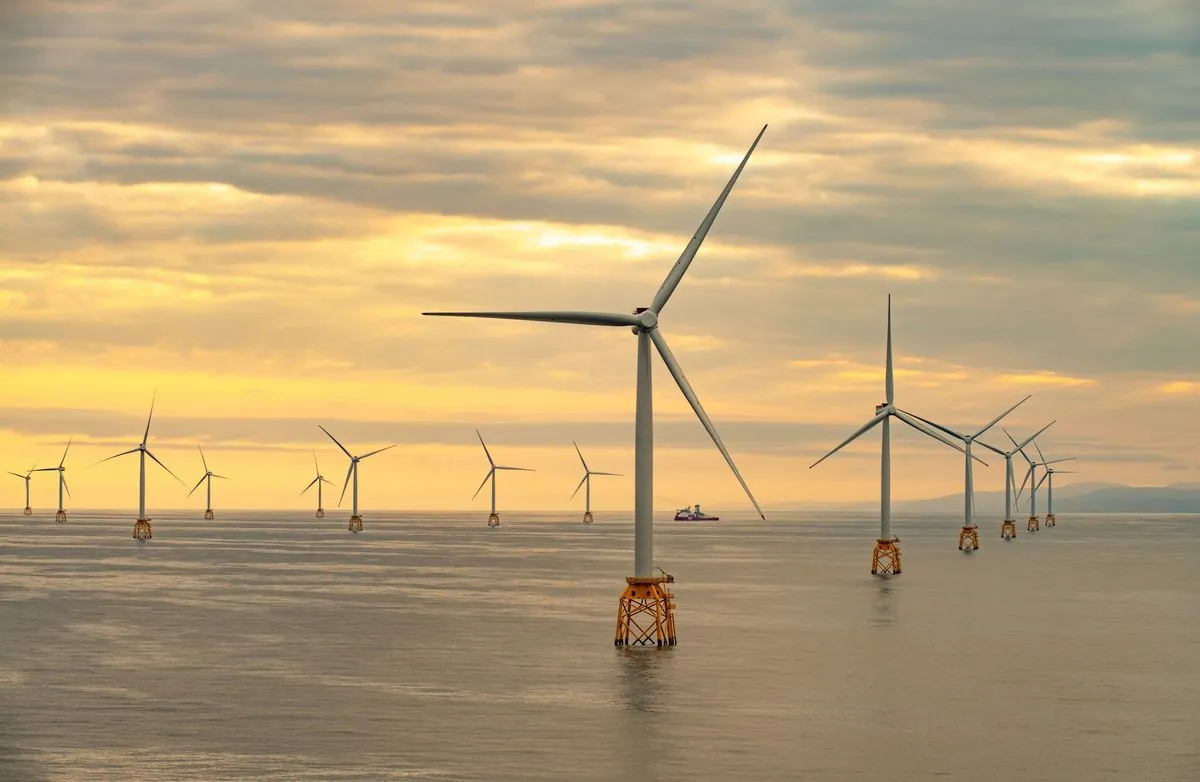UK's Renewable Energy Bid Results Spark Economic Debate
The UK government's latest renewable energy auction results reveal higher-than-market prices for wind and solar projects. Critics argue this approach may harm economic competitiveness and increase consumer costs.

The UK government has recently unveiled the outcomes of its latest renewable energy capacity auction, known as AR6. This announcement has ignited discussions about the economic implications of the country's renewable energy strategy.
Neil Record, Chairman of the Institute of Economic Affairs, offers a critical perspective on the current system, highlighting its divergence from traditional capital investment models. Unlike typical large-scale projects where investors bear market risks, the UK's renewable energy sector operates under a unique framework.
The government provides renewable energy investors with guarantees on both the price and quantity of electricity they can sell. This system, introduced in 2014 as the Contracts for Difference (CfD) scheme, aims to support low-carbon electricity generation. However, it has significant implications for grid management and conventional power sources.
Under this arrangement, grid managers must prioritize renewable energy, regardless of demand or cost-effectiveness. This requirement can lead to challenges in grid management, especially considering the UK's electricity demand typically peaks during winter evenings. The intermittent nature of wind and solar power often necessitates backup from gas power stations, which provided about 40% of UK electricity in 2022.

The pricing mechanism in AR6 has raised eyebrows. Offshore wind projects secured prices approximately 30% higher than average market rates, while floating offshore wind installations were guaranteed prices 200% above market levels. Solar and onshore wind projects also received above-market price guarantees.
These premium prices are ultimately reflected in consumer electricity bills. Moreover, some previously agreed-upon capacity was allowed to renegotiate for higher rates in this auction round, further impacting costs.
The UK has set ambitious targets for renewable energy, aiming to increase offshore wind capacity from 13.7 GW in 2022 to 50 GW by 2030. This aligns with the broader goal of achieving 100% low-carbon electricity by 2035 and net-zero carbon emissions by 2050. However, critics argue that the current approach may be economically unsustainable.
Record contends that while renewables were briefly cheaper than gas during the Ukraine crisis (approximately 2022-2023), the situation has reversed. Gas prices have decreased due to market flexibility, while UK electricity prices continue to rise, potentially affecting the country's economic competitiveness.
"This is not 'leading the world', it's economic suicide."
As the UK phases out coal power, with the last plant set to close by October 2024, the balance between renewable energy ambitions and economic considerations remains a subject of intense debate. The government's approach to renewable energy subsidies and its impact on consumers and the broader economy will likely continue to be scrutinized in the coming years.


































